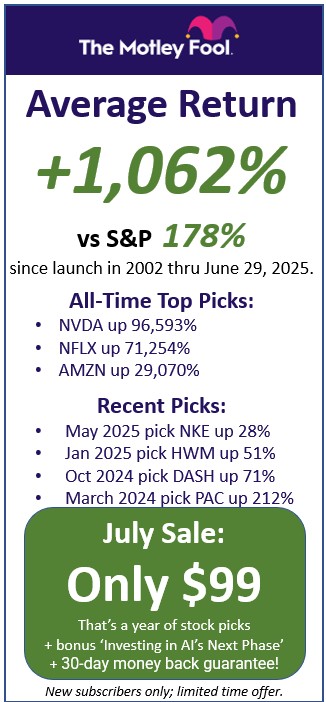Wall Street, here I come!
OK, so you’ve read all about market risk, you’ve figured out your investment profile and you’ve completed the courses on how to analyze a stock. But how do you start investing?
If you’re like most people, that’s exciting—but also a bit scary. After all, up to now it’s all been about theoretical investments and imaginary portfolios. From this point on, though, it’s different. It’s about money. Real money. YOUR real money.
OK, we don’t want to spook you, but it’s important to proceed with caution. You’re still learning the ropes and we want you to start off on the right foot.
How to Start Investing? With a Brokerage.
Figuring out how to start investing begins with choosing a brokerage. A brokerage is simply an authorized dealer of financial products like stocks and bonds. And the only way you can buy and sell them is through a brokerage.
“Hold on a second, here!” you might say. “I thought free markets were all about the freedom to buy and sell. Who says I have to hire a broker to do that for me?”
Well, the reason brokerages exist is because if they didn’t, all hell would break lose. Imagine all the millions and millions of investors calling up the New York Stock Exchange every day. Who would keep track of all their orders? How would you verify who was a legitimate caller and who was just a kid playing a prank? And how would you make sure investors didn’t default on their orders if they changed their minds?
No, free markets aren’t free-for-alls. In order to make the stock market work, exchanges hand all that work over to trusted brokers that they’ve vetted. And that’s why the only way for you to get into the stock market is through a broker.
Before You Make The Call…
Now before you hire your broker, there are a few things you need to do. (We’ve put them in a convenient checklist.)
How to Start Investing: Your Pre-Brokerage Checklist
- Review everything you’ve studied so far. Make sure you understand how the stock market works and what kinds of things can affect your investments.
- Write out your financial goals.
- Determine your risk profile (e.g., low, moderate, high).
- Establish your investment goals (e.g., long-term growth, steady income, preservation of capital).
- Decide how much money you want to invest, and how you want to allocate it between asset types (cash, bonds, stocks).
- List the stocks you would like to have in your portfolio and why. (This is a good time to reexamine why you have made the choices you’ve made.)
Now hold your breath and get ready to jump in. You’re about to pick a brokerage and enter the stock market!
Best Broker for Beginners: Robinhood
Robinhood started in 2013 when a couple of Stanford roommates, Vlad and Baiju, moved to New York and made a life building software companies that helped larger firms hedge their stock funds. As of February, 2025 they have over 23,000,000 accounts. Wow, that’s impressive.
During this experience they started to realize that the average American can be charged around $10 for each stock trade that they make. So they decided to launch the first commission-free app.
They designed an app and a website that guide people through the process of signing up and trading with a confident simplicity. It is really targeted to beginner investors; but they keep adding more features so even more experienced investors like it.
They grew so fast by offering a free stock worth $5 to $200 for each new account holder that puts at least $10 in their account. Learn more about this Robinhood Free Stock Promotion here or read our review of the Best Stock Brokers for Beginner Investors.
Signing up and beginning to participate in Robinhood is fast, and keeps your attention the whole time.
Robinhood: Account Minimum
Robinhood account minimums are set at $0.
When ready, people can then easily add money to the system and start trading.
If you set up a margin account with Robinhood—a type of account that basically allows you to trade with borrowed money—then you’ll have to pay interest on the margin that you’re borrowing on, so this is an additional fee.
But, you can fully sign up and get set up without paying any money! If you like it, you can easily add money to invest.
Robinhood: Investment Options
Robinhood has the goal of keeping investment simple and offering the kind of stocks and investments that people really want.
You’ll have the opportunity to score individual, popular stocks like Amazon and Apple. You can get individual stocks, ETFs, and options contracts for a variety of U.S. ETFs and stocks.
In another bid to appeal to a younger audience, Robinhood has also opened up the world of cryptocurrency in a much easier setting that searching the web for random sites to buy bitcoin on.
Robinhood: Fees
Robinhood famously offers commission free trading, which allows users to get caught up in the drama of moving around stocks without spending all of their hard-earned trading money paying off commissions.
There is still a small fee paid to stock market regulators, but this is a lot less than a more traditional commission paid for a stock order.
FIRST STEPS TO FINANCIAL SUCCESS:
At WallStreetSurvivor, we love with the stock market and we are obsessed with finding the best deals to help us all make more money. Here is our list of the BEST STOCK SERVICES to help you get start investing correctly:
1 - Get Up To $1,000 in FREE Stock with Robinhood! The fastest growing brokerage, Robinhood, just hit 10,000,000 accounts. Why? Because they DON'T charge commission AND they are giving away up to $1,000 in free stock when you open an account. CLICK HERE to learn more about Robinhood.
2 - Not Sure What Stocks to Buy? Get the BEST Stocks Picks! We subscribe to dozens of stock newsletters, and there is one that has outperformed all the rest for the last 5 years. This one service has an amazing average return of 74.63% on ALL of their stock picks the last 3 years. Their recent winners have been stocks like Shopify (SHOP) up 866%, Match Group (MTCH) up 549%, Paycom (PAYC) up 235%, and many others that have doubled in the last 3 years.
CLICK the image below go see their latest offer...

3 - Don't Pay Commission! Open a Real Brokerage Account and Trade Commission-Free. Here's the GREAT NEWS--the brokerage industry is very competitive right now and some brokers are offering FREE COMMISSIONS and other incentives to acquire new accounts. CLICK HERE to get commission-free trades. Or CLICK HERE to get a review of the Best Online Stock Brokers.
4 - Get the Best Stock Picking Newsletter of 2020 We subscribe to dozens of stock newsletters. Some of these newsletters are longer term investing, some are short term, and some are penny stocks. Find the best newsletter for your interests. So which stock newsletters are the best? Visit our review of the best stock newsletters.
5 - Is the Motley Fool a Good Source of Stock Picks? The Motley Fool is probably the best know stock newsletter service. Is it worth it? Read our full Motley Fool Review
